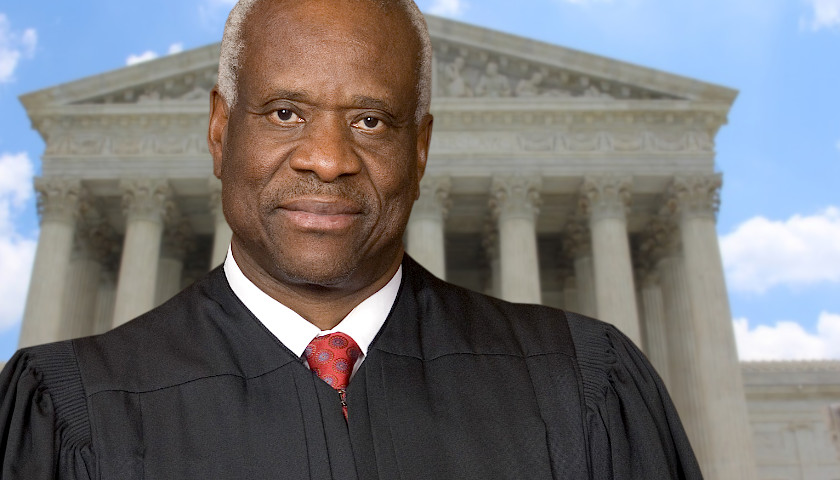by George Rasley
Is it possible to construct a lasting and healthy society upon a legal foundation that not only protects but encourages infanticide, a deep and profoundly immoral act?
We do not believe it is, and the door opened by Roe v. Wade has led American society into a darkness that can only end in the eugenic and racist nightmare of the Nazi Third Reich and other cultures that have allowed humans to be culled like livestock or killed when they become inconvenient.
The battle lines in this great moral debate were set out in stark terms by Justices Clarence Thomas and Ruth Bader Ginsberg in the Supreme Court’s recent holding in Box v. Planned Parenthood of Indiana and Kentucky.
As the writers for The Economist explained, Box concerns Indiana’s HEA 1337, which Mike Pence, now the vice-president, signed into law in 2016 when he was governor of the state. In a Seventh Circuit Court of Appeals ruling last year, two of the law’s provisions were deemed unconstitutional: a requirement that fetal remains from abortions be buried or cremated; and a bar on abortions motivated solely by the fetus’s race, sex or diagnosed disability such as Down syndrome.
The fetal-remains provision lacks a rational basis, the Seventh Circuit held, while the “non-discrimination” rule undermines Roe’s promise, reaffirmed in 1992 in Planned Parenthood v Casey, that states may place no “undue burden” on a woman’s right to end a pregnancy prior to viability, or about 24 weeks’ gestation. To prohibit women with particular motivations from aborting their fetuses is to impose “far greater than a substantial obstacle” on the constitutional right, the Seventh Circuit ruled. These limits are “absolute prohibitions on abortions prior to viability which the Supreme Court has clearly held cannot be imposed by the state.”
Justice Ruth Bader Ginsburg agreed saying a woman who decides to have an abortion “is not a ‘mother,’” citing her “constitutionally protected right to terminate a pregnancy” for whatever reason. Ginsburg in a footnote said that she would “deny Indiana’s petition in its entirety.”
Meaning she approved of denying review of the Indiana law that banned abortions on the basis of sex, race or disability and that she did not approve of the Court’s decision to restore rules regarding cremating and burying fetal remains.
“It is ‘a waste of the court’s resources’ to take up a case simply to say we are bound by a party’s ‘strategic litigation choice’ to invoke rational-basis review alone, but ‘everything might be different’ under the close review instructed by the Court’s precedent … ” Ginsburg said according to reporting by The Daily Caller’s Mary Margaret Olohan. “I would therefore deny Indiana’s petition in its entirety.”
Justice Thomas on the other hand, in an opinion of towering moral clarity, went straight to the foundational principle raised by the case and by the Indiana law, writing that the Supreme Court will not be able to duck the issue of abortion forever, saying, “this law and other laws like it promote a State’s compelling interest in preventing abortion from becoming a tool of modern-day eugenics.”
He had also included discussion of Planned Parenthood founder Margaret Sanger’s recognition of “the eugenic potential of her cause,” and her statement that birth control “opens the way to the eugenist.” Thomas wrote that “further percolation may assist” the court’s review of the abortion restrictions Thomas wrote in his 20-page concurring opinion, “Having created the constitutional right to an abortion, this court is dutybound to address its scope.”
“Enshrining a constitutional right to an abortion based solely on the race, sex, or disability of an unborn child, as Planned Parenthood advocates, would constitutionalize the views of the 20th-century eugenics movement,” Thomas wrote.
As the Washington Examiner’s Melissa Quinn reported, Thomas highlighted comments from Planned Parenthood founder Margaret Sanger and its former President Alan Guttmacher and cited a “growing body of evidence” that suggests “eugenic goals are already being realized through abortion.”
In Iceland, Thomas wrote, the abortion rate for children diagnosed with Down syndrome in utero is nearing 100%. He also noted that the nationwide abortion rate among black women in the U.S. is roughly 3.5 times that for white women.
“Some believe that the United States is already experiencing the eugenic effects of abortion,” Thomas said according to Ms. Quinn’s reporting.
Thomas warned the court’s past cases reaffirming the right to an abortion, namely the 1992 decision Planned Parenthood v. Casey, “did not decide whether the Constitution requires states to allow eugenic abortions.”
Justice Thomas has correctly defined the great moral choice the Supreme Court forced upon America in Roe v. Wade to be a choice between a society that respects, values and protects Life as an unalienable right, as the writers of the Declaration of Independence framed it, or a society that “would constitutionalize the views of the 20th-century eugenics movement” and treat humans as livestock to be discarded or terminated if they are deemed to be defective or no longer useful.




